Yerba Mate is a traditional beverage enjoyed by the people of South America. Today, we will share information about Yerba Mate and its health benefits, inviting you to explore further.
What You Need to Know About Yerba Mate – The National Drink of Argentina
Yerba Mate – An Interesting Beverage
Yerba Mate is a herbal tea that is very popular among the people of South America. This tea is made from the leaves and branches of the Ilex paraguariensis plant, which are then dried over a fire and steeped in hot water to create tea.
Yerba Mate is traditionally served in vessels shaped like gourds and consumed through metal straws. It is believed that sharing Yerba Mate from the same vessel signifies emotional bonds, including friendship.
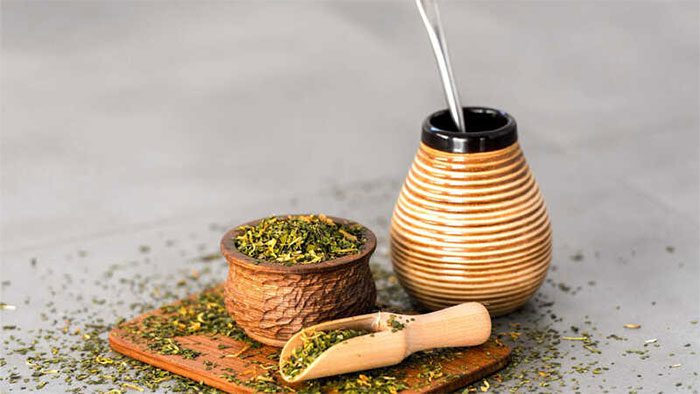
Yerba Mate is a type of herbal tea.
Health Benefits of Yerba Mate
1. Enhances Alertness and Focus
Yerba Mate contains caffeine, which can enhance mental focus and provide energy, reducing fatigue.
Each cup of Yerba Mate typically contains about 85mg of caffeine, which is less than coffee.
Studies on humans have shown that consuming 37.5 – 450mg of caffeine can improve alertness and memory retention.
2. Provides Antioxidants
Certain phytochemicals in Yerba Mate have antioxidant properties beneficial for health, including:
Xanthines such as caffeine and theobromine, which act as stimulants along with caffeoyl antioxidants that can enhance overall health.
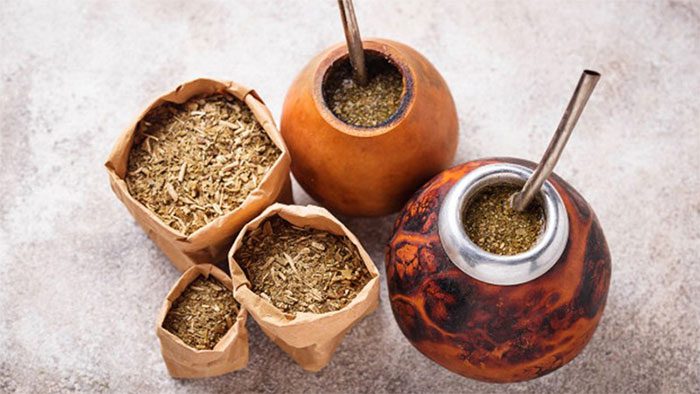
Yerba Mate has higher antioxidant capacity than green tea.
The bitterness of the tea is attributed to saponins, which have anti-inflammatory effects and help lower cholesterol levels, along with polyphenol antioxidants that positively impact health by reducing disease risk.
Research indicates that Yerba Mate has a higher antioxidant capacity than green tea and contains seven of the nine essential amino acids needed by the body.
3. Supports Infection and Bacterial Resistance
The antibacterial properties in Yerba Mate help the body limit infections caused by bacteria, fungi, and parasites.
Research conducted in vitro has shown that extracts from Yerba Mate can inhibit the growth of E. coli, a bacteria that can cause food poisoning symptoms such as abdominal pain and diarrhea.
Additionally, Yerba Mate contains compounds that help combat intestinal parasites and prevent the growth of Malassezia furfur, which can cause dandruff and skin rashes.
4. Boosts Physical Performance
Yerba Mate can improve muscle contractions, reduce muscle fatigue, and enhance the body’s ability to burn fat for energy.
In practice, it has been shown that consuming a capsule containing about 1g of ground Yerba Mate before exercise can burn about 24% more fat at moderate exercise intensity, with potential for even greater fat loss depending on the intensity of the workout.
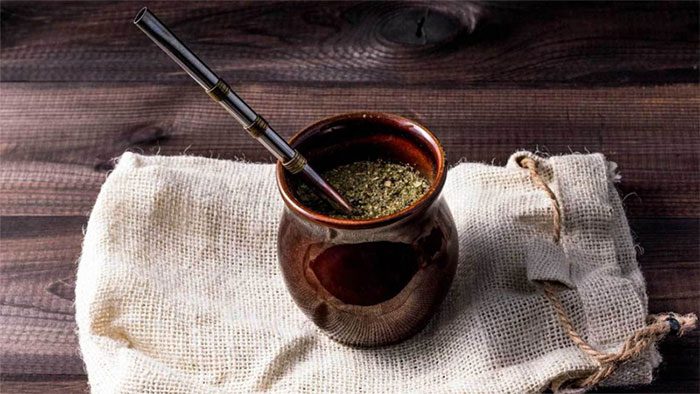
Yerba Mate improves muscle contractions.
5. Strengthens the Immune System
The saponins in Yerba Mate have anti-inflammatory properties and contain small amounts of vitamin C, vitamin E, zinc, and selenium, which have antioxidant characteristics that contribute to a healthy immune system.
6. Aids in Weight Loss
Consuming Yerba Mate can reduce appetite, enhance metabolism, and increase fat burning, contributing to effective weight loss.
A study conducted over approximately 12 weeks in overweight individuals showed that those consuming 3g of Yerba Mate powder daily could lose up to 0.7kg and reduce their waist circumference by about 2% compared to a placebo group.
7. Reduces Heart Disease Risk
The antioxidant and anti-inflammatory properties of Yerba Mate, along with its ability to lower cholesterol levels, can reduce the risk of cardiovascular disease.
Additionally, Yerba Mate contains antioxidants such as caffeoyl and polyphenols that protect heart health.
A 40-day study revealed that individuals consuming 330ml of Yerba Mate daily reduced their LDL cholesterol levels by 8.6 – 13.1%.
8. Helps Lower Blood Sugar Levels
Yerba Mate improves insulin sensitivity and helps maintain healthy blood sugar levels.
Furthermore, it can mitigate some complications for individuals with diabetes by reducing the formation of AGEs, which are associated with the development and severity of certain diseases.
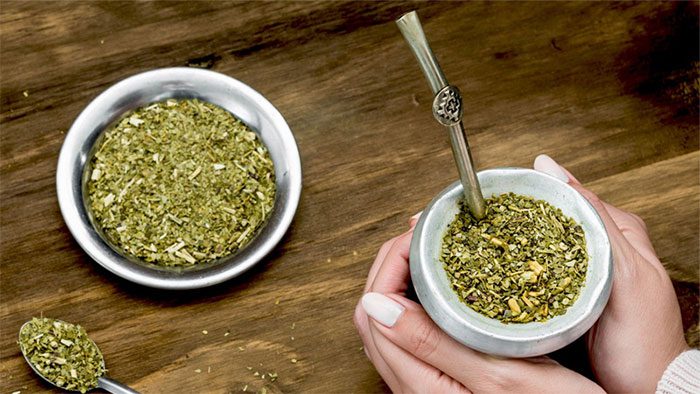
Yerba Mate has monoamine oxidase (MAOI) inhibition activity.
Side Effects of Yerba Mate
Drug Interactions
Some compounds in Yerba Mate have been shown to have monoamine oxidase inhibitor (MAOI) activity, which may interact with certain prescribed medications for depression and Parkinson’s disease.
Therefore, caution is advised when consuming Yerba Mate along with MAOI medications.
Caffeine-Related Side Effects
Since Yerba Mate contains caffeine, excessive consumption can lead to headaches, migraines, and high blood pressure in some individuals.
Pregnant women should limit their intake to a maximum of three cups per day, as high caffeine consumption can increase the risk of miscarriage and low birth weight.
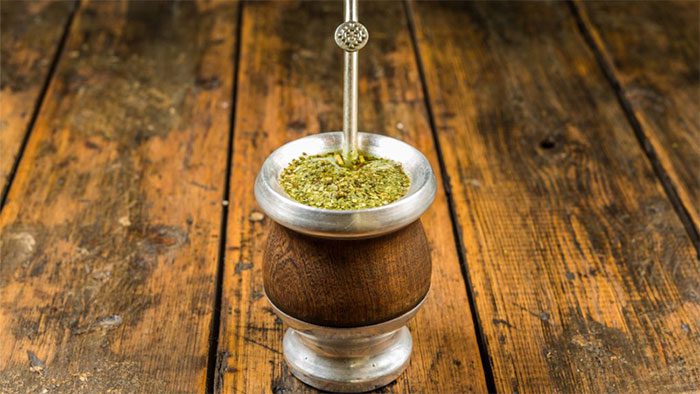
Yerba Mate contains caffeine; excessive consumption may cause headaches.
Cancer
Research indicates that consuming large quantities of Yerba Mate over time may increase the risk of respiratory and digestive cancers.
This is because Yerba Mate contains polycyclic aromatic hydrocarbons (PAHs), which are carcinogens found in tobacco smoke and grilled meats, and are often consumed at very high temperatures, damaging the lining of the respiratory and digestive tracts and increasing the risk of cancer cell formation.
However, some compounds in Yerba Mate may also offer protective effects against other types of cancer.
How to Properly Use Yerba Mate
Yerba Mate can be enjoyed like regular tea, depending on personal preferences; it can be served hot or cold.
Traditionally in South America, Yerba Mate is served hot and placed in a gourd-like vessel called a calabash, accompanied by a metal straw with a filter at the bottom to prevent tea leaves from getting into the drink.
Additionally, Yerba Mate can be flavored with caramel syrup, lemon juice, or milk for a delicious twist.


















































